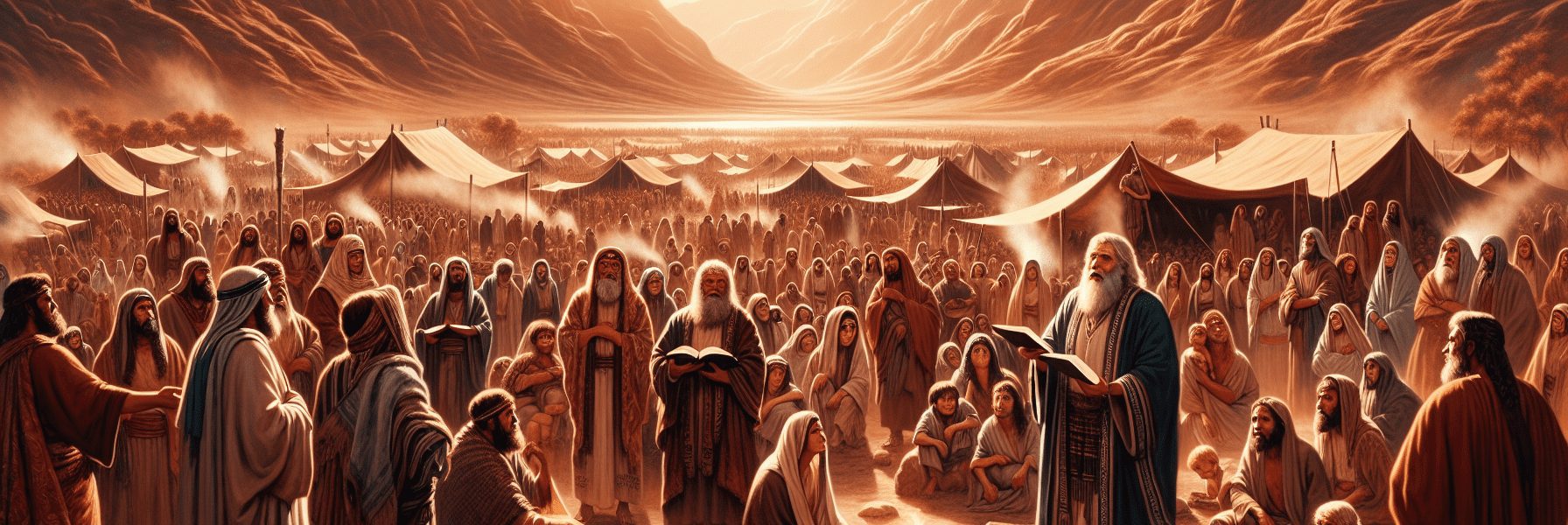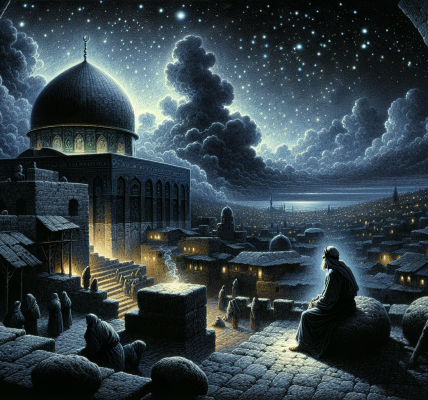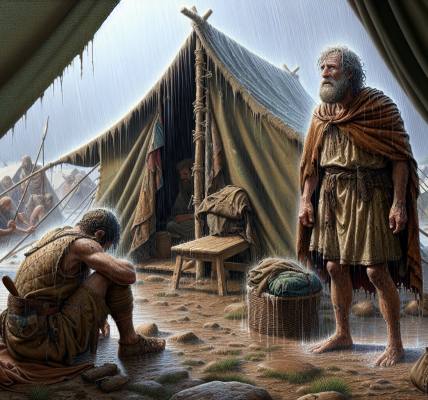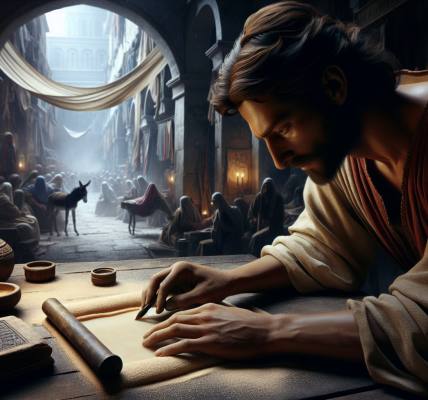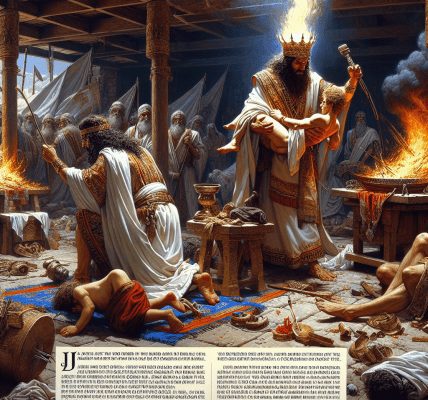**The Year of Jubilee: A Story of Redemption and Restoration**
The sun hung low over the tents of Israel, casting long shadows across the encampment at the foot of Mount Sinai. The air was thick with the scent of burning sacrifices, mingling with the dust stirred by the feet of thousands who had gathered to hear the words of the Lord. Moses stood before the people, his face still radiant from his encounters with the Almighty, and in his hands, he held the tablets of the Law. But today, he spoke not of commandments etched in stone but of a promise—a divine rhythm of grace woven into the very fabric of their lives.
**”When you enter the land I am giving you,”** Moses declared, his voice carrying over the assembly, **”the land itself must observe a Sabbath to the Lord.”**
The people leaned in, their brows furrowed in curiosity. A Sabbath for the land? How could the earth rest as they did?
**”For six years, you shall sow your fields, prune your vineyards, and gather your crops,”** Moses continued. **”But in the seventh year, the land shall have a year of solemn rest—a Sabbath to the Lord. You shall not sow your field or prune your vineyard. What grows of its own accord shall be for the poor, and the wild beasts may eat of it. But do not fear, for I will command My blessing upon the sixth year, and it will yield enough for three years.”**
Murmurs spread through the crowd. Trusting the Lord to provide for an entire year without sowing was a test of faith. But Moses was not finished.
**”And you shall count seven Sabbaths of years—seven times seven years—so that the forty-nine years are complete. Then, on the tenth day of the seventh month, on the Day of Atonement, you shall sound the trumpet throughout all your land. And you shall consecrate the fiftieth year and proclaim liberty throughout the land to all its inhabitants. It shall be a Jubilee for you!”**
The word *Jubilee*—*Yovel* in their tongue—echoed like a promise of freedom.
**”In this year, each of you shall return to his possession, and each of you shall return to his family,”** Moses proclaimed. **”If you have sold your land, it shall be restored to you. If you have sold yourself as a servant to another, you shall be released. For the children of Israel are My servants, whom I brought out of the land of Egypt. They shall not be sold as slaves. You shall not oppress one another, but you shall fear your God, for I am the Lord your God.”**
A man named Eliezer, standing at the edge of the crowd, felt his heart swell. He had once been a man of wealth, but a series of poor harvests had forced him to sell portions of his ancestral land to his kinsman, Malchiel. The thought of losing his inheritance forever had weighed heavily upon him. But now, the promise of the Jubilee ignited hope within him. In the fiftieth year, the land would return to him. It was not lost—only held in trust.
Years passed, and Israel crossed into the Promised Land. The cycles of Sabbath years came and went, and the people learned to trust in the Lord’s provision. Then, at last, the forty-ninth year faded, and the Day of Atonement arrived. The priests stood ready, silver trumpets in hand. As the sun reached its zenith, a long, clear blast rang out across the hills of Judah, echoed by answering calls from every village and town.
**”Liberty! Liberty in the Year of Jubilee!”**
In the city of Hebron, Eliezer, now an old man, stood at the gate where legal matters were settled. Before him stood Malchiel, holding the scroll of sale from decades past.
**”The Lord has spoken,”** Malchiel said, his voice firm but not unkind. **”This land returns to you and your children.”** He handed Eliezer the scroll, and with a solemn nod, tore it in two. The deed was void. The inheritance was restored.
Tears streamed down Eliezer’s face as he walked once more through the fields of his youth. The earth was at rest, unplowed and untamed, yet abundant with the goodness of God. Nearby, a family rejoiced as a father, once indentured to pay a debt, embraced his children, free at last.
The Jubilee was more than a law—it was a witness to the character of God. He was a Redeemer, a Restorer, One who would not let His people be crushed beneath the weight of perpetual loss. And though the people would forget, though generations would neglect the Jubilee’s call, the promise remained.
For one day, a greater trumpet would sound. A greater Redeemer would come. And all who were in bondage—to sin, to debt, to death itself—would hear the proclamation:
**”Liberty! The Lord has brought you home.”**
And so the Year of Jubilee stood as a shadow of the grace yet to come, when the true Sabbath rest would dawn, and all things would be made new.
